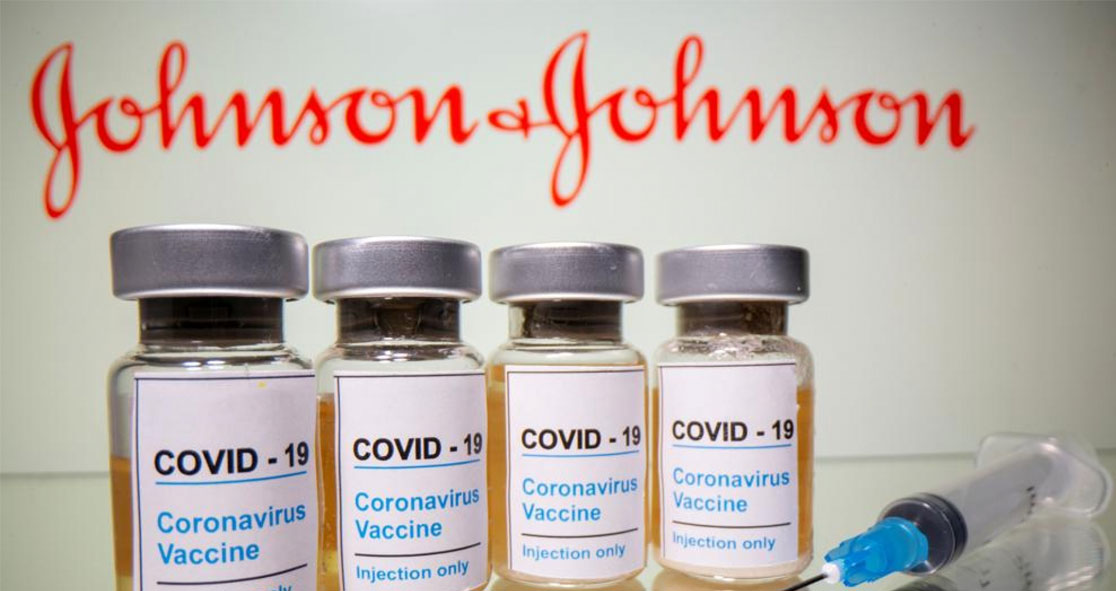Just one dose of the experimental COVID-19 vaccine developed by Johnson & Johnson has shown promising results in early clinical trials, providing a significant boost to vaccination efforts in the United States.
The findings of the trials were published Wednesday in the New England Journal of Medicine.
The vaccine produced an immune response to the virus in all 805 participants within two months of inoculation.
Dr. Andrew Badley, director of the Mayo Clinic’s HIV Immunology Laboratory in Rochester, Minnesota, said, “The data are encouraging in that they show robust generation of neutralizing antibody after a single dose in a younger population and in a population older than 65 years old, and because these responses persisted for at least 71 days.”
U.S. vaccination efforts to distribute the two currently FDA-approved vaccines from Pfizer and Moderna have been going into logjams because the vaccines need extreme refrigeration and people have to get two doses of the vaccine to achieve immunity.
Dr. Aaron Glatt of Mount Sinai South Nassau Hospital in Oceanside, N.Y., said, “It certainly would be very helpful, having one dose instead of two. A lot of the logistical problems is getting that second dose, plus it takes a dose away from someone else. If you only have to give one dose, that would be great.”
The Pfizer and Moderna vaccines are based on mRNA technology, while the Johnson & Johnson vaccine on DNA technology.
The new coronavirus vaccine remains stable for a certain period in the refrigerator.
Dr. Thaddeus Stappenbeck of the Department of Inflammation and Immunity at the Cleveland Clinic’s Lerner Research Institute said of the Johnson & Johnson vaccine, “Longer-term, this can be stored in just a regular freezer like you have in your kitchen, at that temperature. But it’s actually fine for several days, for extended periods of time, refrigerated.”
The trials of the Johnson & Johnson vaccine involved 805 participants divided into two groups, one with individuals aged 18 to 55 and the other 65 and above.
It was found that over 90% of participants developed an immune response within a month. It was also found that all of them had levels of neutralizing antibodies by day 57.
According to the trials, a second dose of the vaccine doubled the amounts of neutralizing antibodies.
Dr. Stappenbeck said, “It’s very possible that the single-dose will work, but it’s not uncommon for vaccinations to require a booster. If this is slightly better with a booster, it would be worth getting the second shot.”
The company said early results from the phase 3 trials are expected by the end of January.
Dr. Amesh Adalja of the Johns Hopkins Center for Health Security in Baltimore said, “It will be essential to confirm these findings in phase 3 clinical trials, where efficacy of the vaccine against the virus can be determined.”
Dr. Stappenbeck said if phase 3 results “are as strong as the data they saw with the mRNA vaccines, then the goal would be to wrap it up quickly and apply for emergency use authorization. It could happen by the end of January. That’s what I’ve heard.”
The researchers of the trials said the safety profile of the vaccine was similar to the existing vaccine. They reported common side effects such as fever, fatigue, headache, and body ache. “The safety looks great,” Dr. Stappenbeck added. “It’s very much in line with what’s been seen with the mRNA vaccine.”























